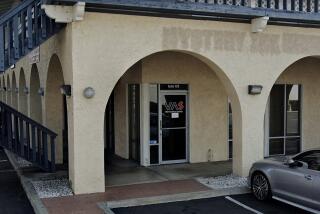State Sues Keating, S&L; Accountant : Lincoln Savings Chief Accused in Sale of $250-Million Bonds
- Share via
The State of California today sued Lincoln Savings & Loan chief Charles H. Keating Jr. for alleged fraud in the sale of $250 million in now-worthless junk bonds.
The accounting company that backed claims about the bonds’ safety was also named as a defendant.
Atty. Gen. John K. Van de Kamp said the defendants include Jack Atchison, the employee of the Arthur Young & Co. accounting firm who handled the account of American Continental Corp., Lincoln’s parent company.
The high-risk, high-interest-rate bonds, sold mainly to elderly Southern Californians at Lincoln branches, were issued by ACC.
Federal regulators say the failure of Lincoln may cost taxpayers $2 billion.
“Charles Keating and his associates at American Continental Corp. were running a huge financial con game, and sucking the assets out of Lincoln Savings to sustain their operations,” Van de Kamp said.
Atchison was later hired by ACC at a salary of $900,000 a year, four times what he was making at Arthur Young.
“It takes no great insight to understand why he was worth that princely sum to ACC,” Van de Kamp said.
The suit, filed in state court in Orange County, seeks restitution of the $250 million in bonds from Keating, other ACC officers and directors, Atchison, and Arthur Young, which is now doing business as Ernst & Young.
Van de Kamp said he will seek civil penalties that could range from $50 million to $100 million.
In targeting the accounting firm, a suit seeks “deep pockets” to recover losses. A Keating attorney, James Ham, said today that many of the legal actions against Keating, including a $2.1-billion lawsuit by the Resolution Trust Corp. in Phoenix, Ariz., are “grandstanding” because his client is broke.
Van de Kamp agreed in part, saying: “There’s little hope that any (ACC) assets will be left over to repay the bondholders. That is why we have taken the time and expense to thoroughly investigate the liability of others who might be responsible.”
More to Read
Inside the business of entertainment
The Wide Shot brings you news, analysis and insights on everything from streaming wars to production — and what it all means for the future.
You may occasionally receive promotional content from the Los Angeles Times.








